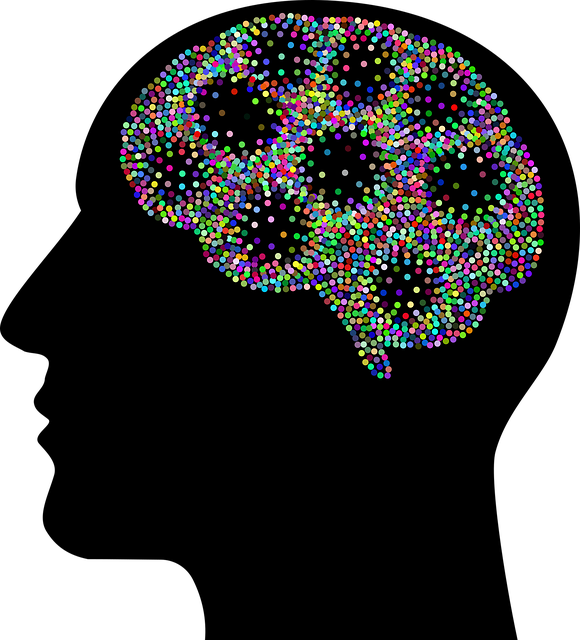Emotional Intelligence (EQ) development through therapy is a powerful tool for adolescent teens, especially those affected by trauma or anxiety. By teaching essential skills in emotion identification and expression, mental health professionals enhance teens' well-being. Early intervention, such as cognitive-behavioral therapy (CBT) and stress reduction techniques, is crucial for building EQ, fostering resilience, and managing challenges like bullying or social media pressure. Tailored therapy sessions create a safe space for teens to process trauma, develop coping strategies, and build strong relationships, ultimately leading to healthier, more fulfilling lives.
Emotional intelligence (EI) is a powerful tool for adolescent success and well-being. This article explores the profound impact of EI on teens, with a focus on understanding its core components and addressing trauma in young minds. We delve into effective strategies for building EI, highlighting the invaluable role therapy plays in enhancing emotional resilience among adolescents. By examining these key areas, parents, educators, and caregivers can empower teens to navigate life’s challenges with increased confidence and self-awareness.
- Understanding Emotional Intelligence and its Impact on Teens
- Identifying and Addressing Trauma in Adolescent Development
- Strategies for Building Emotional Intelligence in Teens
- The Role of Therapy in Enhancing Emotional Resilience in Youth
Understanding Emotional Intelligence and its Impact on Teens

Emotional intelligence (EQ) is a powerful tool that can significantly impact the lives of adolescent teens, especially those who have experienced trauma. It involves recognizing and managing one’s own emotions, as well as understanding and empathizing with others’ feelings. For teens who may be struggling with anxiety relief or coping with the aftermath of trauma, developing EQ can be transformative. Therapy for adolescent teens plays a crucial role in enhancing their emotional intelligence by teaching them to identify and express their emotions healthily, which is essential for overall well-being.
By integrating burnout prevention strategies for healthcare providers into therapy sessions, mental health professionals can help teens navigate their emotions effectively. This approach not only aids in risk management planning for mental health professionals but also empowers teens to build resilience, fostering a better ability to handle stress and challenges. Ultimately, emotional intelligence equips young individuals with the skills to build strong relationships, make thoughtful decisions, and lead more fulfilling lives, even in the face of adversity.
Identifying and Addressing Trauma in Adolescent Development

Adolescent development is a crucial period, and trauma experienced during this time can significantly impact an individual’s emotional intelligence (EI) and overall mental wellness. Many teenage girls often face challenges related to self-esteem improvement due to various factors like peer pressure, social media influence, or personal experiences of bullying. Identifying and addressing these early on is essential for fostering healthy EI development.
Therapy for adolescent teens trauma plays a pivotal role in supporting their journey towards mental health recovery. Through specialized therapy sessions, young individuals can process traumatic events, develop coping strategies, and enhance their emotional regulation skills. Incorporating this into the design of mental wellness podcast series production or crafting engaging Mental Health Education Programs can further promote self-awareness, empathy, and effective communication—all key aspects of building emotional intelligence.
Strategies for Building Emotional Intelligence in Teens

Building emotional intelligence (EI) is a crucial process for teenagers, as it equips them with essential life skills to navigate their feelings and interact with others effectively. For adolescents who may have experienced trauma, therapy plays a pivotal role in this journey. Cognitive-behavioral therapy (CBT), for instance, can help teens identify and challenge negative thought patterns arising from traumatic events, fostering healthier emotional responses.
Incorporating stress reduction methods and mood management techniques into their daily routines is also beneficial. Mindfulness practices, such as meditation or deep breathing exercises, teach teens to stay grounded in the present moment, thereby reducing anxiety and improving emotional regulation. Additionally, encouraging open communication about feelings and emotions can promote emotional well-being through support from family, peers, or professionals.
The Role of Therapy in Enhancing Emotional Resilience in Youth

For many adolescent teens grappling with trauma or emotional challenges, therapy serves as a lifeline to building emotional resilience. This therapeutic process empowers young individuals to understand and manage their emotions effectively. Through structured conversations with trained professionals, they learn to identify and express feelings constructively, fostering inner strength development.
Therapy provides a safe space for teens to process traumatic experiences, offering anxiety relief and effective risk management planning. Mental health professionals employ evidence-based techniques tailored to each teen’s unique needs. This supportive environment encourages them to develop coping strategies, enhancing emotional intelligence and overall well-being.
Emotional intelligence is a cornerstone of healthy adolescent development, and addressing trauma is a critical component of fostering this skill. By identifying and managing emotional triggers through tailored strategies and, where necessary, therapy for adolescent teens trauma, we can empower young individuals to navigate their emotions effectively. This holistic approach, combining self-awareness with professional support, paves the way for enhanced emotional resilience, leading to improved mental well-being and overall life satisfaction in teens.








